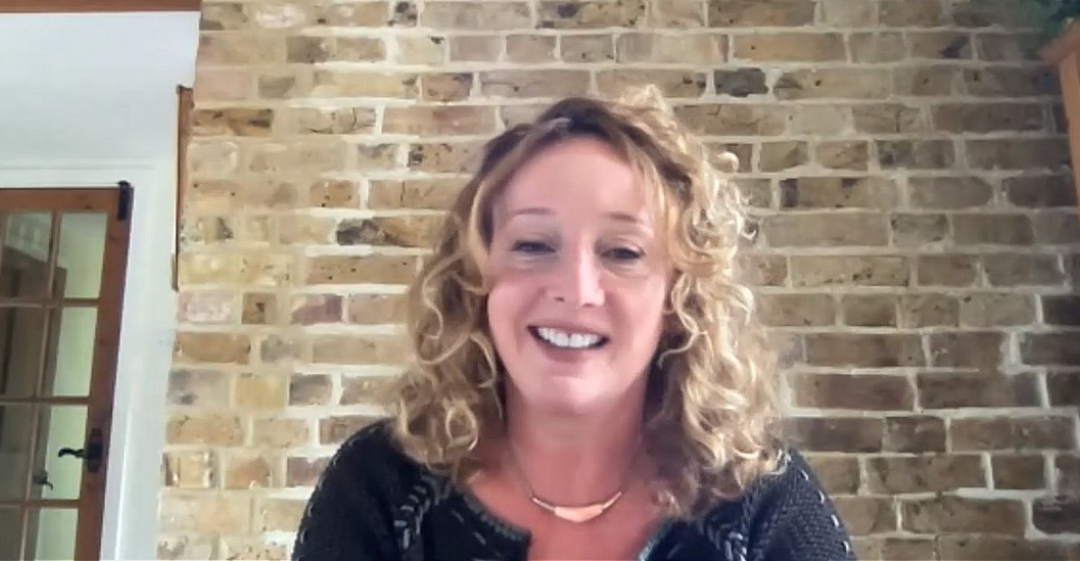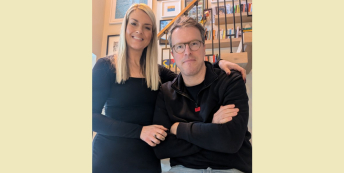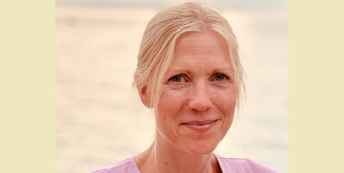“I was achieving great things for my clients, but it wasn’t meaning anything to me.”

What work were you doing previously?
I set up and ran my own PR and business writing firm.
What are you doing now?
I have a portfolio career – I’m a ceramic artist and I sell to galleries, I paint murals, and I run workshops.
I also work in publishing, editing books, and I do the social media for a publishing house.
I still have a foot back in the business writing and PR world, but as it's a small part of what I do now (rather than all that I do) I can enjoy it more and get satisfaction out of it.
Why did you change?
While it was fascinating running my own business, I found that I ended up with a huge 'so what' factor.
I was achieving great things for my clients but it wasn’t meaning anything to me, and there was an element of not feeling authentic at work.
I remember sitting in my office at my desk thinking, 'What am I doing here? There's a whole world out there', but I didn't know how to get out of it. I didn't have the flexibility in my thinking to consider that I could do anything different.
My friends used to have a nickname for me – they'd call me 'Stuck' because when I’d talk to them about my career I'd just say 'I don't know how to change it'.
When was the moment you decided to make the change?
In the end the business pivoted.
We'd found that PR had got such a bad reputation that people were a bit cynical, so the business morphed into a different form, doing other corporate stuff.
I jumped ship, and decided that I wanted to work for a big company. Because I’d spent most of my working life being my own boss, I felt like I'd missed out – I wanted to know what it was like having lots of colleagues and talking around the water cooler etc.
I got a job doing marketing and writing for a cybersecurity company which did have its plus points but I ended up falling off a cliff and being signed off with stress, so it clearly wasn't a good fit.
Being signed off work gave me some breathing space to start thinking about other things I could do. That's when I googled 'career change' and found Careershifters. I signed up to the Career Change Launch Pad.
How did you choose your new career?
I knew that I wanted a creative life and enjoyed writing, and wanted to bring in a bit of my old corporate life into the mix.
I had been attending a ceramics evening class while I was at the PR firm, and I knew I loved it.
But what helped the most was just being open to possible options. For example, with mural painting – never in a million years would I have thought someone would want one of my paintings on their kids bedroom wall, but someone asked me and I did a really good job. It just took off from there.
Are you happy with the change?
I absolutely love what I do now.
My thinking used to be very black and white. I took things very seriously, and thought I had to move to one specific role or career that needed to be perfect.
Now I feel more like 'let's try a bit of this, try a bit of that', and life has become more playful and lighter.
I'm seeing my career more like an adventure now. For years and years I just sat at a desk writing and not seeing anyone, and it was a bit samey. I'm enjoying the variety now.
How did you go about making the shift?
I think 'falling off a cliff' from stress when I left my cyber security job forced my hand.
It gave me time while I was on paid sick leave to start planning both how my portfolio career could work and to plan finances.
I went freelance and secured the more 'serious' work first, the corporate work, to guarantee some income that way.
And then I think it's all been gradual, and I've just opened up to different things. Allowing myself time to be creative and meeting other creatives has opened up my mind more to new possibilities.
How did you develop (or transfer) the skills you needed for your new role?
I got a post-graduate diploma in digital marketing because I thought that would bump up my more corporate freelance work.
But there's other ways to build up skills and you should only sign up to something if it's a considered choice.
How did you handle your finances to make your shift possible?
I made the shift during the pandemic so saved money during the lockdowns when I wasn't really doing anything.
So as long as I had some money coming in to cover my main bills, the corporate writing freelancing gave me time to play around with my other ideas.
What was the most difficult thing about changing?
I think my confidence was really low at the beginning and I wasn't valuing my services enough.
I didn't think that people would want to pay for my writing or my art. It took time to build that confidence.
What help did you get?
My biggest wobble was at the very beginning of my shift because I had all these wrong ideas that my career situation was different to everyone else's.
I felt shame with where I was at in my career, that I wasn't decisive.
Being on the Launch Pad with others helped me see that we're all in the same boat, no matter our different backgrounds, and that kept me going.
What have you learnt in the process?
That it's possible to not live a conventional life.
I am conventional in that I'm a single mum and I need some stability, but outside of that I don't need to be stuck at a 9-5 job every day doing the same old thing.
What do you wish you'd done differently?
I would have been more gentle with myself.
I was quite hard on myself when I was stuck in my unhappy career. Even though I'd achieved a lot career-wise, I still felt indecisive, I didn't know why I wasn't happier, and I was quite mean to myself.
What would you advise others to do in the same situation?
I’d say if you're miserable in your career, don't wait until your health collapses.
Do something about it while you've still got the strength.
And you don't need to know all the answers, you just need to know the next little step, or to try something out.
Life doesn't work when you think you have to jump from where you are to one specific, 'perfect' place.
Helen took part in our Career Change Launch Pad. If you're ready to join a group of bright, motivated career changers on a structured programme to help you find more fulfilling work, you can find out more here.



